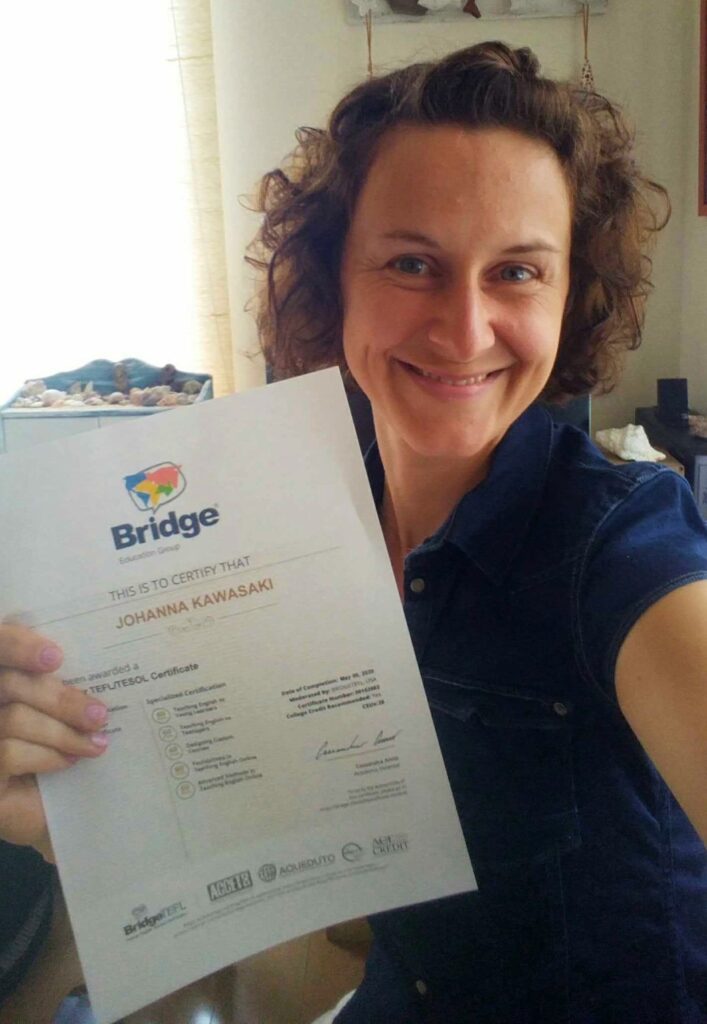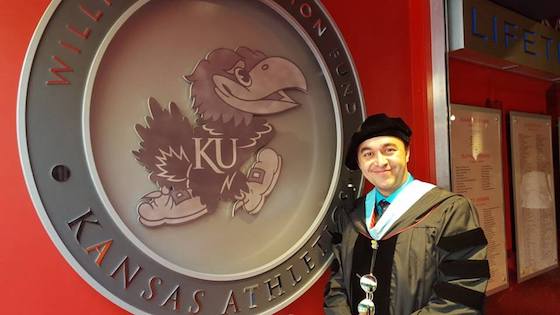In today’s hypercompetitive TEFL universe, having more qualifications will open up the most doors when it comes to teaching English in the classroom or online. But what exactly are those qualifications? If you hold a bachelor’s degree in a related subject (or even an unrelated one) do you still need to earn an in-person or online TEFL certificate? What if you have a master’s degree? The answer in most cases is yes, degree holders will still need training in teaching English as a foreign language in order to qualify for teaching jobs.
What are the key requirements to teach English as a foreign language?
Let’s start with an overview of the typical requirements to teach English before digging in a bit deeper to define some exceptions that can sometimes apply.
TEFL/TESOL certification
Most jobs teaching English, whether it’s in a traditional classroom or online, require TEFL/TESOL certification of 120 hours or more. This training provides the theoretical and practical foundation in English language instruction – such as teaching methods, lesson planning, grammar knowledge, and classroom management – that prepares you to be an effective teacher.

Johanna is an online and classroom-based English teacher in Japan
It’s important to know, however, that there are different kinds of TEFL/TESOL certificates (including online vs. classroom-based courses and self-study vs. group online courses), and each teaching job will have its own requirements.
If you plan to teach English overseas, regions and countries can also have specific requirements. Learn more about teach-abroad requirements by region. And if you plan to teach English online, specialized certification in teaching English online will help you stand out from other applicants and also prepare you for the unique challenges of the virtual classroom.
A degree
If you’re reading this article, you likely meet this requirement, and that’s helpful since many in-person and online English teaching jobs require (or at least prefer) that teachers are degree holders.
Some schools and online teaching companies require you to have a minimum of a bachelor’s degree, though usually your degree can be in any subject. More competitive jobs may look for teachers with a degree in a field related to teaching English, such as education, linguistics, or English, but this is not typical. Be aware, too, that the jobs and locations with the strictest requirements (think high-paid jobs in a region like the Middle East) may even require you to have a master’s in TESOL or in education.
Teaching experience
There’s a lot of variance when it comes to teaching experience requirements. Some positions won’t require teachers to have previous experience at all, while others may. Some schools or online jobs may count other types of experience, such as a job working with kids or a role in which you led employee trainings, as adequate experience to get the job.
Read more: How do my non-teaching skills apply to teaching English online?
Do you need TEFL/TESOL certification if you have a degree?
Now let’s return to our original question and discuss how teacher training requirements relate to the degree you hold.
If you have a bachelor’s degree in any subject
While a liberal arts bachelor’s degree, especially one in English or communications, might make you feel equipped to get in front of a class of students and teach what may be your native language, TEFL certification is still going to be required by the vast majority of language schools, academies, auxiliary programs, and online English tutoring companies. TEFL/TESOL certification proves to employers that you have gone through training, developed strategies, and know your grammar inside and out.
If you have a bachelor’s degree in education
If your bachelor’s degree is in education, you might be reluctant about investing in a TEFL/TESOL certificate. After all, you have already learned many of the essential skills you’ll need to be an effective teacher. Yet, TEFL/TESOL training is still recommended, since teaching the English language requires very a different approach and skillset than what is used when teaching subjects like math, history, or even language arts to native English speaking students. If you plan to teach English online, the skills you’ll need are even more specific, such as navigating online platforms and software, using virtual teaching tools, and managing your equipment.

Juicy Mae with one of her online English students
Filipina college instructor, Juicy Mae, had a degree in education when she decided to earn Specialized Certification in Teaching English Online in order to transition to virtual teaching while taking a break from her college job because of the COVID-19 crisis. Here, she describes how her course prepared her for online teaching.
“First, it was like a refresher for me. Back in my university, my major was English Education. We were taught of some strategies and methods on how to deal with students inside the classroom. When I was in my university, they only taught me ways on how to teach students in a traditional classroom, but my TEFL/TESOL course helped me to be more equipped at handling learners via virtual classrooms and what strategies and methods I can use to make my classroom more interactive, engaging and practical.”

Natassia with a high school class in Lisbon
Nastassia had a master’s degree and was teaching at an ESL center in Miami when she made the decision to get TEFL/TESOL certified for her plans to teach abroad in Portugal.
“I knew that I needed additional training for teaching English,” she says. “Within four years of my [TEFL/TESOL] certificate, I have surpassed my expectations of living abroad and teaching… I have taught in a Portuguese school ranging from Pre-A1-B1.1 proficiency levels. Additionally, I work as an ambassador for Education First, where I get to travel throughout Portugal’s secondary schools (high-schools), promoting the significance of learning English.”
If you have a bachelor’s or master’s degree is in TESOL
There is a notable exception to needing certification and that is getting an actual degree in TESOL – Teaching English to Speakers of Other Languages. This route is, of course, a lengthier commitment (most programs are about two years) so it’s a good fit for people who plan to make a long-term career out of teaching English. If you think this may be the direction you’d like to take, consider getting TEFL/TESOL certified via the Bridge International Diploma in English Language Teaching (IDELTOnline™) as it can be taken as credit toward MA TESOL programs at a number of partner universities.
TEFL/TESOL certificate to ensure you can deliver quality lessons. However, if you’re going for a job in higher education a master’s in TESOL might be worth it for you.
Can I teach English without a TEFL/TESOL certificate?
In short, the answer is: Perhaps. Maybe. Don’t risk it.
Now that ESL has seen a hastened shift to online classes, there’s a growing number of people wanting to teach English as a side job. Given the current supply, it’s important to offer extra preparation in your lessons to students. A TEFL/TESOL certificate ensures you’re qualified to teach kids and adults in the classroom and virtually, too.
Take a look at how you benefit from these certificates:
In the classroom
TEFL/TESOL courses are designed to teach you the skills classroom English Language professionals need, such as methodology, classroom management, and teaching strategies. You will probably see that your classes contain significant differences in the students’ levels or a mix of language and cultural backgrounds. TEFL/TESOL certification courses prepare you for these inevitable challenges in a way that more generalized teacher training may not.
Online
Most online teaching jobs require a TEFL/TESOL certificate. There are some that do not, but the market is competitive, so having training, such as general TEFL/TESOL certification combined with Specialized Certification in Teaching English online is going to help you qualify for the best jobs. You can also teach English online as a Freelancer without a TEFL/TESOL certification, but you’ll definitely attract more students and be better prepared to teach them if you have verifiable training and credentials.
Overall, whether you have a university degree or not, investing in a TEFL/TESOL certificate is a gateway to more opportunities teaching English virtually and in the classroom. As the world continues to face the challenges and consequences of the COVID-19 pandemic, it’s best to be as prepared and qualified as possible to succeed in an increasingly competitive job market.








